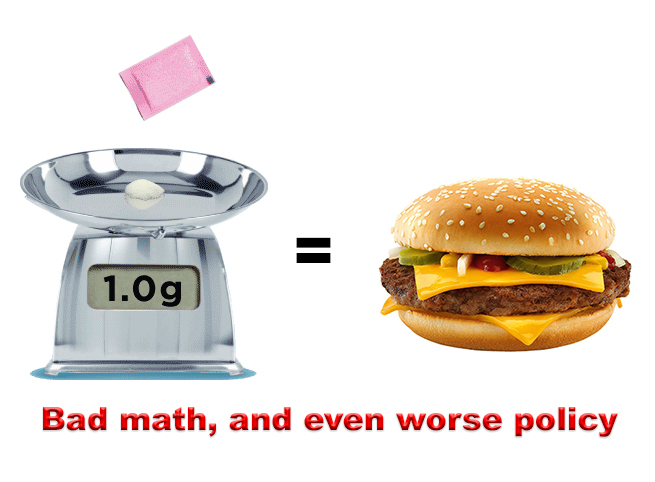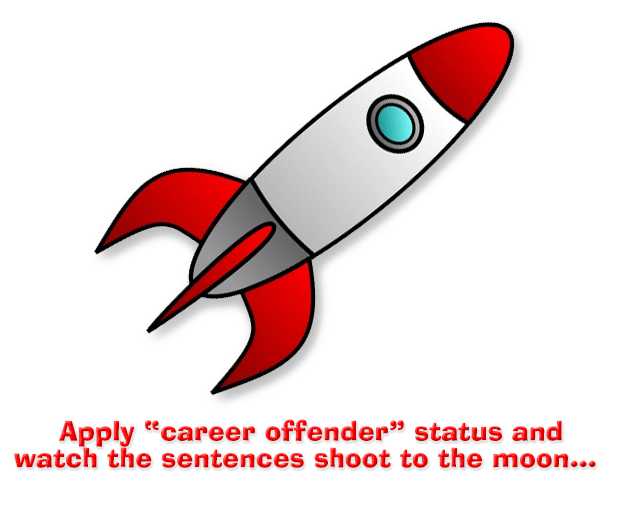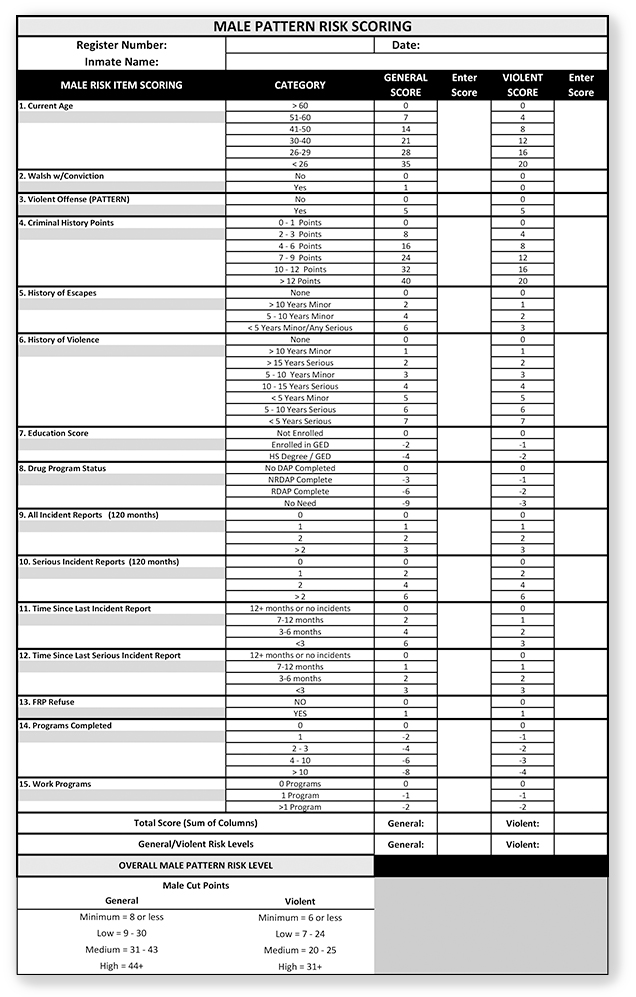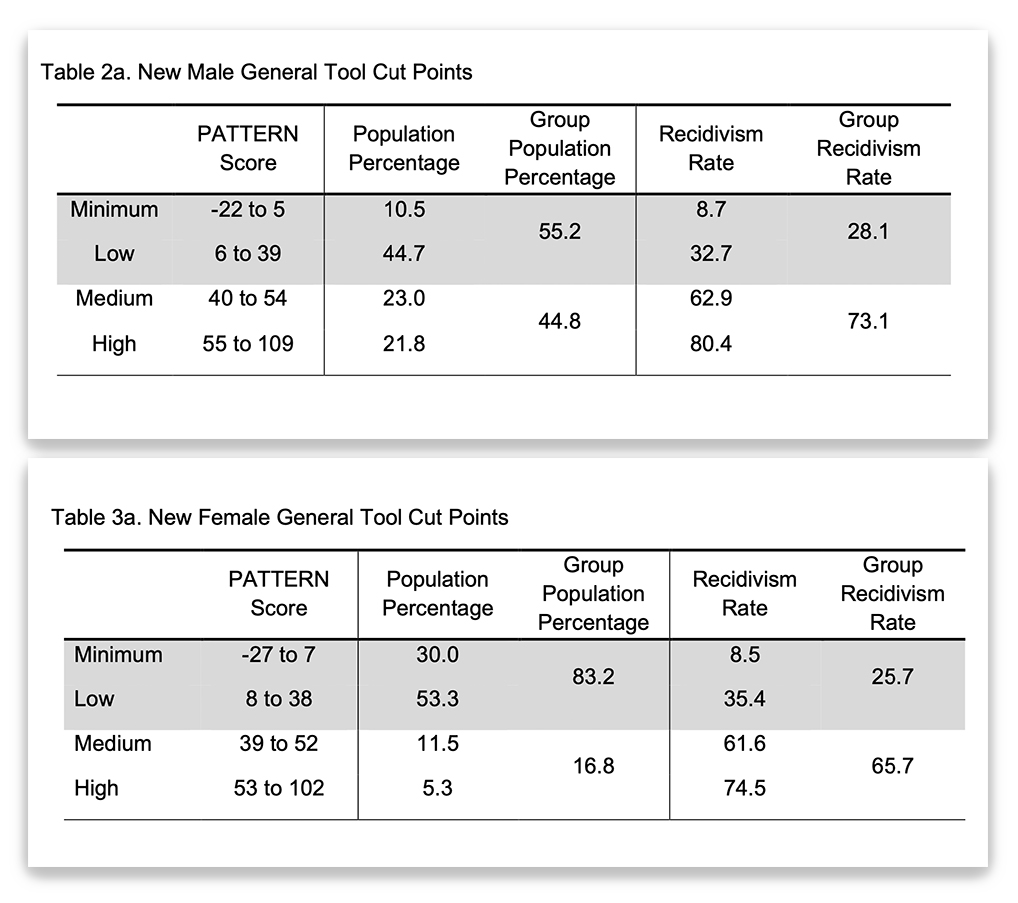We post news and comment on federal criminal justice issues, focused primarily on trial and post-conviction matters, legislative initiatives, and sentencing issues.

THE GOOD, THE BAD, AND THE UGLY
 One provision of The First Step Act, signed into law in December 2018, allowed eligible inmates to earn credits toward an earlier release from prison, more halfway house or home confinement. The credits, called “earned time credits” or ETCs, were to be granted to prisoners participating in certain needs-based educational programs and productive activities. For every 30 days of successful participation, the prisoners could earn up to 15 days off their sentence up to a maximum of 12 months (365 days). ETCs could also be used to entitle the inmates to more halfway house or home confinement on a 1-1 basis: 30 days of ETC credit would earn 30 days more of home confinement, for instance.
One provision of The First Step Act, signed into law in December 2018, allowed eligible inmates to earn credits toward an earlier release from prison, more halfway house or home confinement. The credits, called “earned time credits” or ETCs, were to be granted to prisoners participating in certain needs-based educational programs and productive activities. For every 30 days of successful participation, the prisoners could earn up to 15 days off their sentence up to a maximum of 12 months (365 days). ETCs could also be used to entitle the inmates to more halfway house or home confinement on a 1-1 basis: 30 days of ETC credit would earn 30 days more of home confinement, for instance.
The challenge for the Bureau of Prisons has been to keep accurate track of the credits earned by inmates. It is a multi-step analysis: First, is the inmate eligible to participate in the earned-time credit program? Second, has the inmate’s needs been properly assessed? Third, has the inmate enrolled in programming that addresses that need? Fourth, how many credits has the inmate earned in any given month?
When the BOP adopted the ETC system in January 2022, the system it enacted was 180 degrees opposed to the Draconian proposal the agency had floated previously. The adoption seems to have caught the BOP flat-footed, because it simply threw up its hands (figuratively speaking) and declared that any inmate eligible for the credits as of January 15th was assumed to have participated in eligible programs for every day since December 21, 2018 (or when the inmate arrived in the system, whichever was later).
Sweet deal. As a result, thousands of inmates were released in the days following the January adoption date.
But every Christmastime ends, and so did the BOP’s ETC giveaway. Since January 15, the agency has struggled with how to quickly calculate inmate ETCs on a rolling basis. In April, the BOP revealed in a court case that it was developing a computer program – an “auto-calculation” system – to update each inmate’s ETC credits continuously. The BOP estimated Auto-Calc would be implemented by about August 1.
The BOP finally delivered its Earned Time Credit “Auto Calculation” system last Thursday. “On time and under budget” is not a mantra at the Bureau. Delivery took about 50% longer than the BOP predicted it would. And, as Walter Pavlo said in Forbes last Friday, it “landed with a thud.”
Why the thud? The Auto-Calc system was accompanied by a memo that announced several interpretative rules the BOP is imposing by fiat. You know, rules that interpret other rules. And unlike the adoption of last January’s formal rules, there was no rulemaking proceeding, no “notice and comment” period, and scant indication the changes were coming.
The First Step Act spelled out prisoner eligibility in detail, But that hasn’t stopped the BOP from adding its own bells and flourishes.
The good news in the memo (such as it is) is that
• the BOP’s official stance is that ETCs will be applied first to reduce sentence length, and second to more halfway house and home confinement. The agency had been doing that since last January, but it had never announced that as BOP policy. Given how arbitrary the BOP can be, the announced adoption of the reduction-first approach as policy is a good thing.
• any halfway house or home confinement awarded using ETCs will be granted “in addition to release needs-based recommendations made under the Second Chance Act.” In other words, if the Second Chance Act would have entitled a prisoner to placement in a halfway house for six months even without ETCs, and you have 120 days of ETC credit applied to halfway house, you would be placed for 10 months.
• the Auto-Calc system will update ETCs monthly.
• the BOP verified that ETCs may be applied toward early release in addition to the early release benefit for RDAP graduates. In other words, RDAP now double counts toward early release, up to 12 months off for successful completion of the program as well as an additional credit of up to 150 days ETC credits for finishing RDAP.
• In order to earn 15 days credit for every 30-day period instead of 10 days for every 30-day period, inmates need to (1) start out with a low- or minimum-risk PATTERN level; OR (2) have dropped to a low- or minimum-risk PATTERN level and maintained it for two consecutive assessment periods. This is good news, because a number of inmates who entered the system with low or minimum scores have been told in the past few months that they have to have two consecutive assessment periods under their belts before getting 15 days of ETC credits in a month.
 But there is bad news in the memo, too:
But there is bad news in the memo, too:
• The memo codifies what I first learned last month. The BOP will not credit ETCs toward early release for inmates who are 18 months from release. At 18 months, the BOP says, “the release date becomes fixed, and all additional ETCs are applied toward” halfway house or home confinement.
This is a slight improvement over what the BOP was saying a month ago. In a declaration the BOP filed in Marier v. Bergami, the BOP manager said the cutoff was 24 months. But it still means, practically speaking, no inmates with sentences of less than 42 months will have enough time to collect ETCs entitling them to 12 months off their sentence (the maximum allowed by law).
This also means that unless an inmate can complete the in-custody portion of RDAP with at least 18 months left, the RDAP ETCs will apply to more halfway house or home confinement, not more time off.
Pavlo complained in Forbes last week that “with this more restrictive condition, BOP is even going against the Department of Justice’s intent of FSA which was to ‘transfer eligible inmates who satisfy the criteria in § 3624(g) [awarding of FSA credits] to supervised release to the extent practicable, rather than prerelease custody [halfway house and home confinement]’… In Fiscal Year (FY) 2019, the cost of incarceration fee for a federal prisoner at a federal facility was $107.85 per day; in FY 2020, it was $120.59 per day. It costs less than half that to place a minimum security prisoner on home confinement and it costs nothing if the prisoner is not in custody at all. Thousands of prisoners will be affected by this unilateral decision by the BOP. For many prisoners, their date for returning to society has been prolonged by a memorandum that is both unfair and arbitrary.”
• The memo states that “inmates who refuse or fail to complete any portion of the needs assessment and/or refuse or decline any program recommended to address a specific identified need area, are considered “opted out” and will not earn ETCs.” This hardly seems to be bad news, except that it assumes that the failure to complete needs assessment or refusal or declining to take a program is intentional.
More than one inmate has already reported that he or she was marked “refused” for not taking a program that simply was not available at the time. One inmate only saved from being marked “refused” by proving that he had sent the staff member responsible for the program a request to be put on the “wait list.”
• Starting eight months ago, the memo says, “all components of the SPARC-13 needs assessment must be complete to be eligible to earn ETCs. Failing to do so is considered ‘opted out.’ In other words, if an inmate fails to complete a required survey to enroll in a recommended program which addresses a specified need, the inmate will not be eligible to earn FTCs.”
The SPARC-13 is the Standardized Prisoner Assessment for Reduction in Criminality, a battery of surveys mandated by the BOP’s Initial Review of the SPARC-13 Needs Assessment System, issued last March. Judging from inmate reports, few have been given the surveys to complete. Even if they are asked to do so now, it is not clear whether any programs completed between January 15 and September 8 will count if the SPARC-13 was not done prior to that time.
• the memo states that “while inmates continue to earn FTCs, inmates can only apply the FTCs if they have no detainers, unresolved pending charges, and/or unresolved immigration status issues.”
These restrictions do not appear in the First Step Act and make little sense. It is logical that the BOP would not send inmates to detainers to halfway house or home confinement. That is a long-standing limitation. But there is no security issue in letting inmates with detainers benefit from shortened sentences. If an inmate gets a year off, the BOP simply lets the detaining agency know to pick up the inmate on Sep 12, 2022, instead of Sep 12, 2023, for instance.
Pavlo quotes a retired BOP employee as saying of the memorandum, “BOP is creating their own language and leaving the discretion in the hands of case managers to interpret who is eligible and who is not. They have completely disrespected the intent and FSA law states.”
 Finally, the ugly. The memo notes that “as a reminder, the unit team will determine an inmate’s eligibility to earn FTCs based on the current conviction and prior criminal convictions.” This means that basic decisions applying the statute are decentralized among close to a thousand unit teams. Given some of the errors already made by unit teams unschooled in the FSA, the amount of administrative remedy and judicial review such decision-making decentralization will spawn is likely to be quite significant.
Finally, the ugly. The memo notes that “as a reminder, the unit team will determine an inmate’s eligibility to earn FTCs based on the current conviction and prior criminal convictions.” This means that basic decisions applying the statute are decentralized among close to a thousand unit teams. Given some of the errors already made by unit teams unschooled in the FSA, the amount of administrative remedy and judicial review such decision-making decentralization will spawn is likely to be quite significant.
A final thought: The Administrative Procedure Act (5 USC § 552), with its “arbitrary and capricious” standard, governs just about all federal agencies. However, Congress specifically stated in 18 USC § 3625 that the APA does not “apply to the making of any determination, decision, or order under this subchapter.”
The catch here is that § 3625 is specific to 18 USC Chapter 229, Subchapter C. The portion of the FSA establishing ETCs is set out in the newly-created Subchapter D. Congress either decided not to exempt the BOP’s implementation of the ETC from the APA, or it just forgot to do so. Either way, the ETC program appears to be subject to APA challenges, something new for BOP management.
Forbes, Bureau of Prisons’ Interpretation of First Step Act Will Leave Thousands of Inmates Incarcerated (September 9, 2022)
BOP, Memo on Implementation of Auto-Calculation (September 8, 2022)
BOP, Initial Review of the SPARC-13 Needs Assessment System (Mar 2022)
Declaration, ECF 10-1, Marier v. Bergami, Case No 21C50236 (ND Ill, Aug 9, 2022)
– Thomas L. Root



























